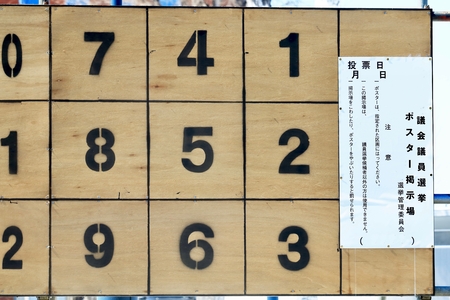1. Introduction: A Storied Tradition
The British Isles have always been a land where myth, history, and cosmic curiosity intermingle. From the evocative words of Shakespeare, who often wove astrological symbolism into his plays, to the enigmatic standing stones of Stonehenge whose celestial alignments continue to fascinate, Britain’s relationship with astrology is both ancient and uniquely local. This rich tapestry of cultural heritage sets the stage for a distinct approach to monthly astrology—one that draws on centuries of folklore, literary allusions, and archaeological wonder. In Britain, the stars are not merely distant lights; they are woven into the very fabric of national identity, guiding everything from daily rituals to seasonal celebrations. By exploring these cultural touchstones, we can better understand how Britain’s historical legacy shapes its ongoing fascination with the movements of the heavens.
Astrology in British Literature and Folklore
Astrological motifs have woven themselves into the very fabric of classic British literature and folklore, shaping narratives and societal beliefs for centuries. Nowhere is this more apparent than in the works of William Shakespeare, whose plays often reference planetary influences and star-crossed destinies. For instance, in King Lear, Gloucester muses, “These late eclipses in the sun and moon portend no good to us,” reflecting a widespread Elizabethan conviction that celestial events governed human fate. Similarly, Romeo and Juliet are famously described as “star-cross’d lovers,” their tragic story echoing the belief that personal fortunes rise and fall with the stars.
Astrological References in Classic British Works
| Work | Astrological Theme |
|---|---|
| Romeo and Juliet (Shakespeare) | Star-crossed fate |
| King Lear (Shakespeare) | Eclipses and omens |
| A Midsummer Night’s Dream (Shakespeare) | Mischievous planetary influence |
| The Canterbury Tales (Chaucer) | Zodiacal timing of tales |
Folklore and Old Wives’ Tales: Monthly Star Lore
Beyond literary references, astrology permeates British folklore through old wives’ tales and rural customs. Many communities developed monthly rituals based on star signs, such as sowing crops under a waxing moon or predicting weather shifts by observing planetary alignments. These traditions, often passed down orally, reveal how deeply astrological thinking was embedded in everyday British life.
Common Monthly Astrological Beliefs in British Folklore
| Month | Folkloric Astrological Practice |
|---|---|
| January | Forecasting the year by “first foot” under Capricorn’s sign |
| March | Sowing seeds during Pisces’ influence for a fruitful harvest |
| June | Midsummer divination guided by Gemini’s twin energies |
| October | Samhain rituals tied to Scorpio’s transformative symbolism |
Cultural Legacy
This enduring blend of literary allusion and living custom highlights the unique British approach to astrology—one rooted not just in scholarly texts but also in local lore, seasonal practices, and a communal sense of cosmic rhythm that persists from Shakespeare’s age to our own.

3. Stonehenge and the Celestial Connection
Among Britains most iconic landmarks, Stonehenge stands as a testament to the enduring British fascination with the cosmos and the rhythms of nature. This ancient stone circle, believed to have been constructed between 3000 and 2000 BCE, is much more than a mysterious monument—it serves as an astronomical calendar aligned with the solstices and equinoxes. The very layout of Stonehenge reveals a sophisticated understanding of celestial movements, reflecting how early Britons observed and celebrated seasonal cycles.
The significance of Stonehenge in monthly astrology cannot be overstated. For millennia, people gathered at this site to mark pivotal moments in the solar year, such as Midsummer and Midwinter. These gatherings were not merely ritualistic; they were intimately connected to agricultural cycles, timekeeping, and spiritual beliefs about the heavens influence on earthly affairs. The precise alignment of its stones with sunrise and sunset points underscores a deep-rooted belief in the interconnectedness of cosmic events and daily life—a theme still resonant in modern British astrological traditions.
Today, Stonehenge continues to inspire both professional astrologers and enthusiasts across Britain. Annual solstice celebrations draw crowds who seek to reconnect with these ancient rhythms, suggesting that the legacy of using celestial events to guide personal reflection and communal activities remains alive. In this way, Stonehenge embodies a uniquely British approach: blending reverence for history with ongoing curiosity about how the heavens shape human experience month by month.
4. The British Calendar and Monthly Star Signs
When it comes to astrology, the British have a unique knack for blending tradition, wit, and an ever-present awareness of the changing seasons. Rather than treating horoscopes as mystical mandates, many Britons approach their monthly star signs with a healthy dose of tongue-in-cheek humour and local flavour. This results in astrological readings peppered with regional idioms and references to everything from drizzly weather to the eccentricities of village life.
The Rhythm of the British Year
The British calendar is punctuated by seasonal events—think Pancake Day in February, May Day celebrations, or Bonfire Night in November—that influence both mood and astrological interpretation. Monthly horoscopes often acknowledge these traditions, weaving them into predictions. For example, a Taurus reading in May might mention “taking a breather after all that maypole dancing,” or a Cancer forecast in July could joke about “braving the British seaside, rain or shine.”
Astrology with a Local Twist
It’s not uncommon for horoscopes published in UK newspapers or magazines to include distinctly British references, such as:
| Star Sign | Typical British Humour & References |
|---|---|
| Aries | “Channel your inner Churchill—keep calm and carry on, especially during rush hour.” |
| Taurus | “Stubborn as an old pub regular—sometimes change needs more than just a nudge.” |
| Gemini | “Chattier than a queue at the post office—use your gift of the gab wisely this month.” |
| Cancer | “Like a cuppa on a rainy day—find comfort in familiar rituals.” |
| Leo | “Ready for centre stage at the village fete—don’t forget to share the limelight.” |
| Virgo | “More organised than a train timetable (on a good day)—your lists will serve you well.” |
A Personal Touch: DIY Horoscopes
Many Brits also personalise astrology by writing their own playful horoscopes or sharing light-hearted forecasts among friends. It’s not unusual to hear someone quip, “Mercury must be in retrograde—I’ve spilt my tea twice already!” This self-deprecating humour keeps astrology approachable and firmly rooted in everyday life, reflecting both the pragmatic and whimsical sides of British culture.
In sum, the British approach to monthly astrology is less about fate and more about finding meaning—and laughter—in shared cultural moments and familiar routines. Whether referencing Shakespearean drama or Stonehenge’s ancient mysteries, it’s always with a wink and nod to local character.
5. Astrology in Modern British Culture
Astrology, despite its ancient roots, continues to weave itself into the fabric of contemporary British life in ways both overt and subtle. A morning scroll through daily newspapers like The Sun or The Daily Mail often reveals a dedicated section to horoscopes, nestled between weather forecasts and football commentary. For many Brits, checking their star sign’s predictions is less about cosmic fate and more about harmless entertainment—a tradition as habitual as brewing a cup of tea.
Beyond print, astrology enjoys renewed popularity on digital platforms. British podcasts such as “Astrology with Alice” and Instagram astrologers with thousands of followers have given the subject a modern twist, drawing younger audiences with witty banter and playful memes about Mercury retrograde mishaps. Here, astrology becomes a shared cultural language; colleagues might laugh off missed deadlines by blaming planetary alignments, while group chats light up with jokes about ‘typical Virgo’ behaviour during monthly lunations.
Yet, true to Britain’s reputation for scepticism and dry humour, astrology is equally subject to satirical takes. Comedy shows like “Mock the Week” and cartoonists in publications such as Private Eye regularly poke fun at astrological predictions and those who take them too seriously. This blend of irony and affection allows astrology to exist in a space that is both ridiculed and oddly respected—a testament to the British knack for not taking things too seriously.
Amidst the laughter and eye-rolls, some quietly maintain more serious rituals. In places like Glastonbury or rural Wiltshire near Stonehenge, monthly moon gatherings or solstice celebrations draw communities together for reflection, meditation, and stargazing. These events echo Britain’s long-standing relationship with celestial cycles—linking the past reverence of megalithic monuments to present-day practices.
In summary, astrology’s presence in modern British culture is multifaceted: it’s both an everyday amusement and an enduring thread connecting people across time. Whether approached with wry wit or genuine curiosity, astrology remains part of the ongoing conversation about identity, belief, and what it means to be British—from Shakespearean musings to Stonehenge’s silent stones.
6. Conclusion: A Tradition Reimagined
The British approach to monthly astrology is a remarkable tapestry, woven from threads of ancient wonder and literary imagination. From the mystical stones of Stonehenge that once marked celestial cycles to the eloquent musings of Shakespeare on fate and the stars, Britain’s relationship with astrology has always balanced reverence for tradition with a lively spirit of reinvention. Today, this blend remains vibrantly alive. Modern astrologers in the UK draw inspiration from both scientific advancements and the romanticism found in classic British literature, crafting horoscopes that speak to contemporary lives while echoing centuries-old curiosity about our place in the cosmos.
This ongoing dialogue between past and present gives British astrology its unique character. It is not simply about predicting fortunes; it is an exploration—sometimes playful, sometimes profound—of human nature and destiny. The British penchant for wit, scepticism, and poetic expression infuses astrological interpretation with layers of meaning that transcend mere superstition or entertainment.
In essence, Britain’s monthly astrology stands as a testament to cultural adaptability. Whether you are reading your horoscope in a morning paper or attending a midsummer gathering near ancient ruins, you are participating in a living tradition. One that honours both rational inquiry and imaginative storytelling, Shakespearean drama and Druidic mystery. This synthesis ensures that astrology remains relevant, resonant, and distinctly British—a tradition continuously reimagined for each new generation under the same timeless sky.


